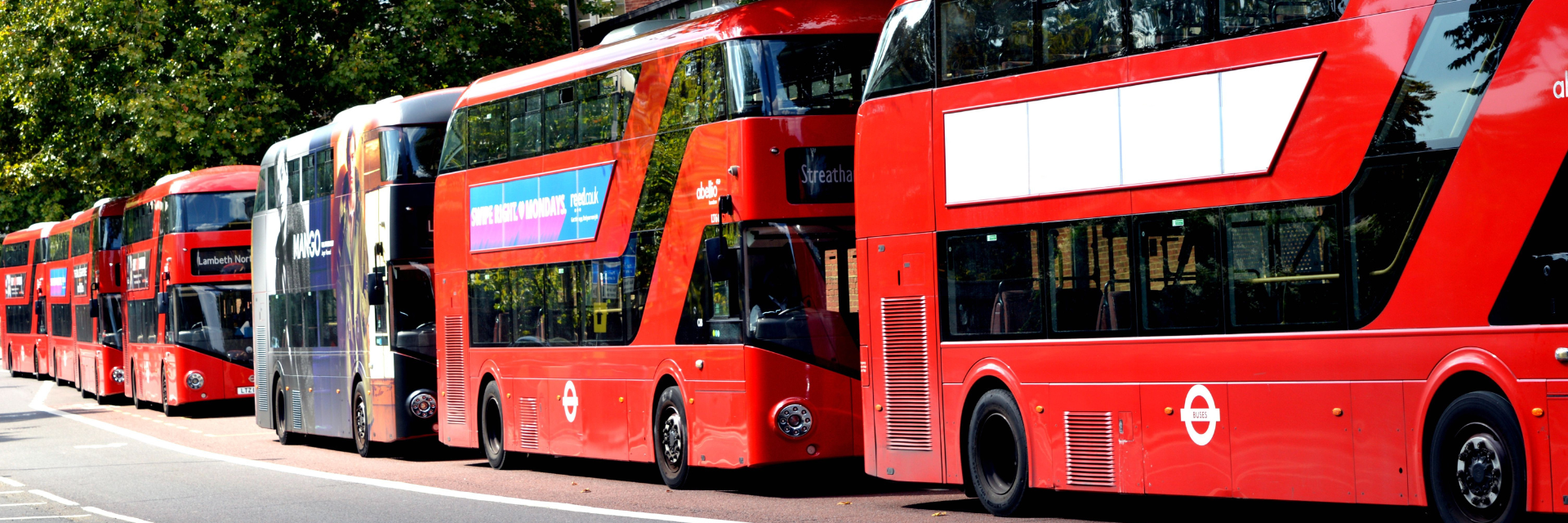Blog by Jack Williamson, Team Leader & Senior Political Consultant for Transport and Infrastructure
Bus policy became mainstream news last week with several key announcements, including at the Spending Review.
The headline announcement came on Wednesday 11th June, when the Chancellor confirmed the £3 bus fare cap – already an increase on the £2 cap under the last Government – would be extended until March 2027, covering 5,000 bus routes outside of London and Manchester.
Transport for London (TfL) also announced last week that there are now more than 2,000 zero-emission buses (ZEBs) operating on routes in the capital, meaning two in every nine buses are now zero emission, around 20 percent of the fleet. TfL’s target is to make its entire bus fleet zero-emission by 2030.
Despite these measures to attract people to use buses, bus patronage has declined over the past decade, with 1bn fewer trips made in 2023 compared to 2011. Patronage is important for the financial stability of bus networks, with many struggling to recover after the Covid-19 pandemic.
Increasing bus patronage is therefore vital. While supporting the financial viability of the bus networks, which many rely on, it also helps reduce the number of private vehicles on the road, which can result in cheaper road maintenance costs and greater accessibility to parking for those who need it most. Increased ridership also helps connect people to amenities such as education, work and leisure, all of which promote social inclusion and economic growth.
However, higher ridership isn’t a silver bullet. Some routes will never have the required population density to generate a profit, and this poses a problem for the industry.
In response to this challenge, the IPPR North published a report titled: “En Route To Renewal: Delivering Better, Greener Buses”. The report recommends all Local Transport Authorities (LTAs) adopt a form of regulated bus governance, which they define as “full coverage of a strategic authority area by one or a combination of enhanced partnership, bus franchising or municipal ownership”.
The success of re-regulation can be seen in Greater Manchester, where the pioneering Bee Network has begun connecting the region. Through the Bee Network, Transport for Greater Manchester (TfGM), has grasped the opportunity to re-design routes, develop a consistent public transport brand and integrate new fare services, such as hopper fares or multi-modal ticketing. Despite high initial costs (an estimated £145m for the transition) the success of the Bee Network has allowed for revenues to be reinvested directly into local bus services.
Interestingly, the report suggests taking public ownership models further by upgrading LTAs to Total Transport Authorities (TTAs): “one locally, democratically controlled body responsible for integrating public, private and community transport in each place”. IPPR North say benefits would be reaped in infrastructure planning, such as aligning provision for Zero Emission Bus (ZEB) charging infrastructure. They argue that the initial investment required to establish TTAs would be paid back through increased ridership in areas with dense populations.
The report also proposes the establishment of a National Bus Company (NBC), “a national joint venture consortium for ZEB procurement and financing, acting to enable greater investment in greener buses and support LTAs to upgrade their fleets”. The NBC would operate through a “local-national partnership model”, taking advantage of the central government’s fiscal capacity, to consolidate the procurement and production of ZEBs, which would in turn drive down costs and support longer-term stability.
The report does make a strong case for the NBC becoming a coordinator of the UK’s bus sector. However, we have seen, albeit on a larger scale, the challenges faced by the creation of other national transport organisations such as Great British Railways.
For now, re-regulation at a local and regional level should be seriously considered by policy makers, noting the opportunity it presents to deliver better services for the public and stimulate the necessary rise in patronage at a faster pace.
